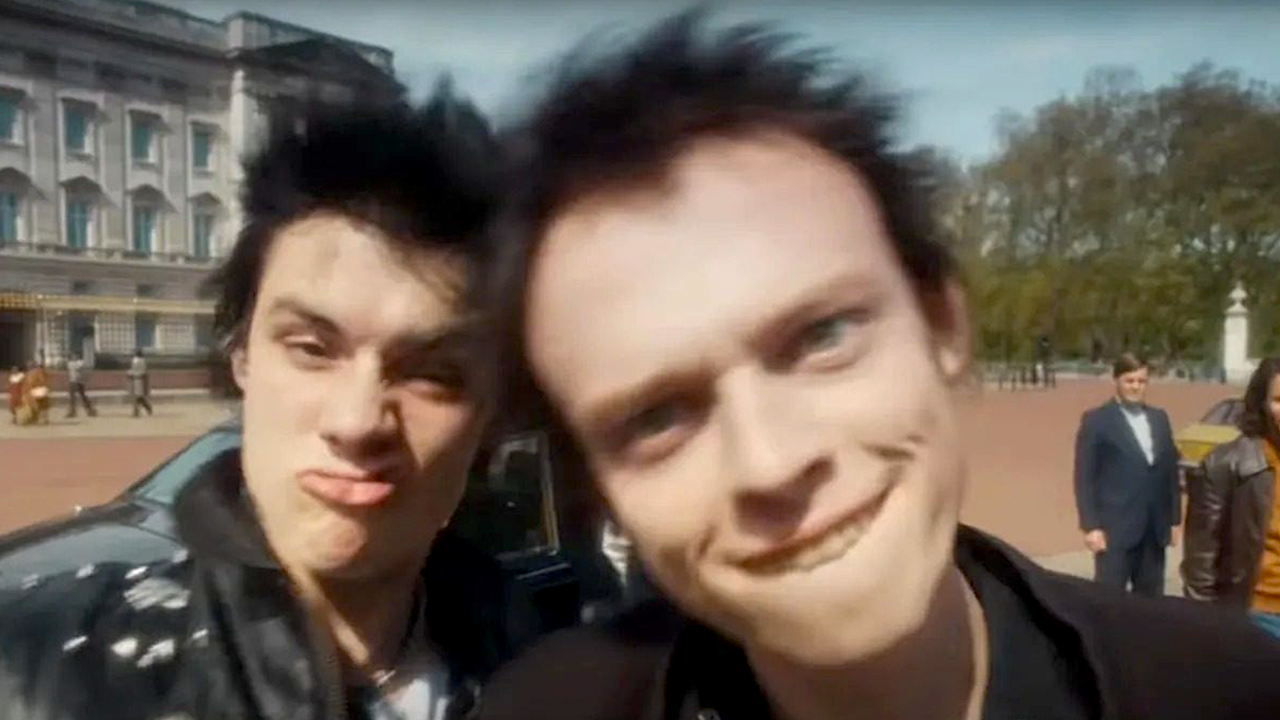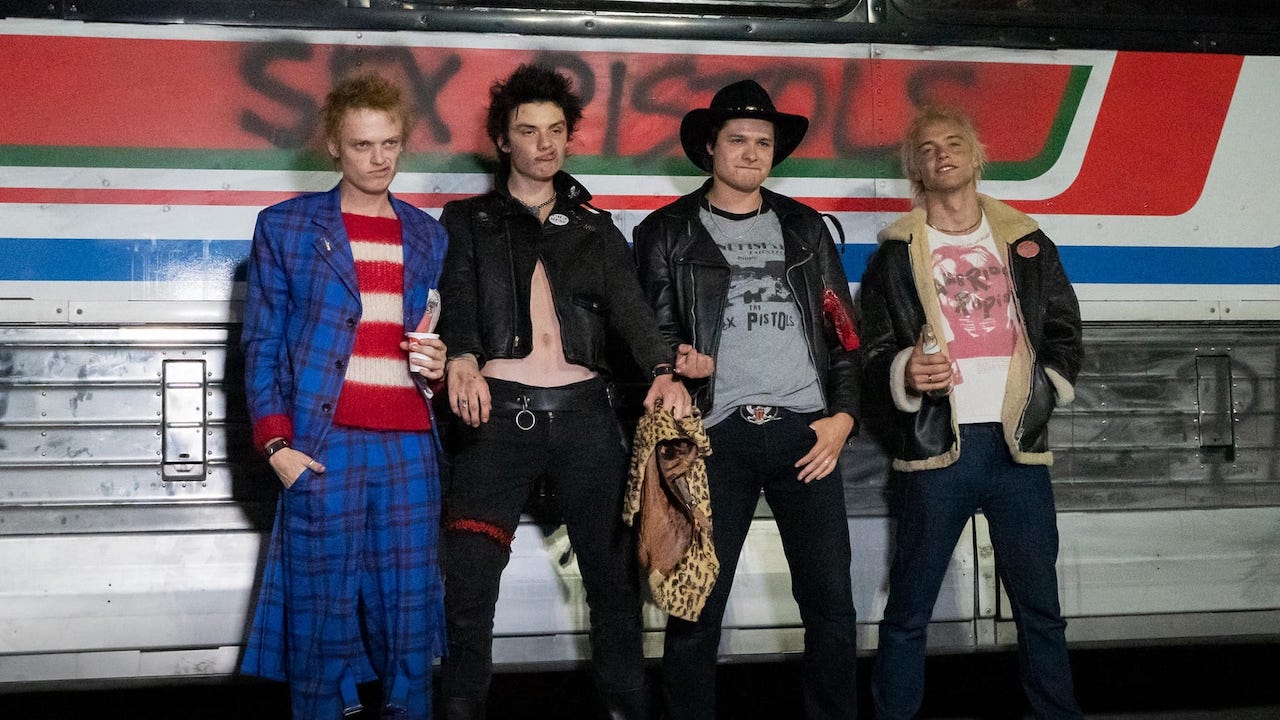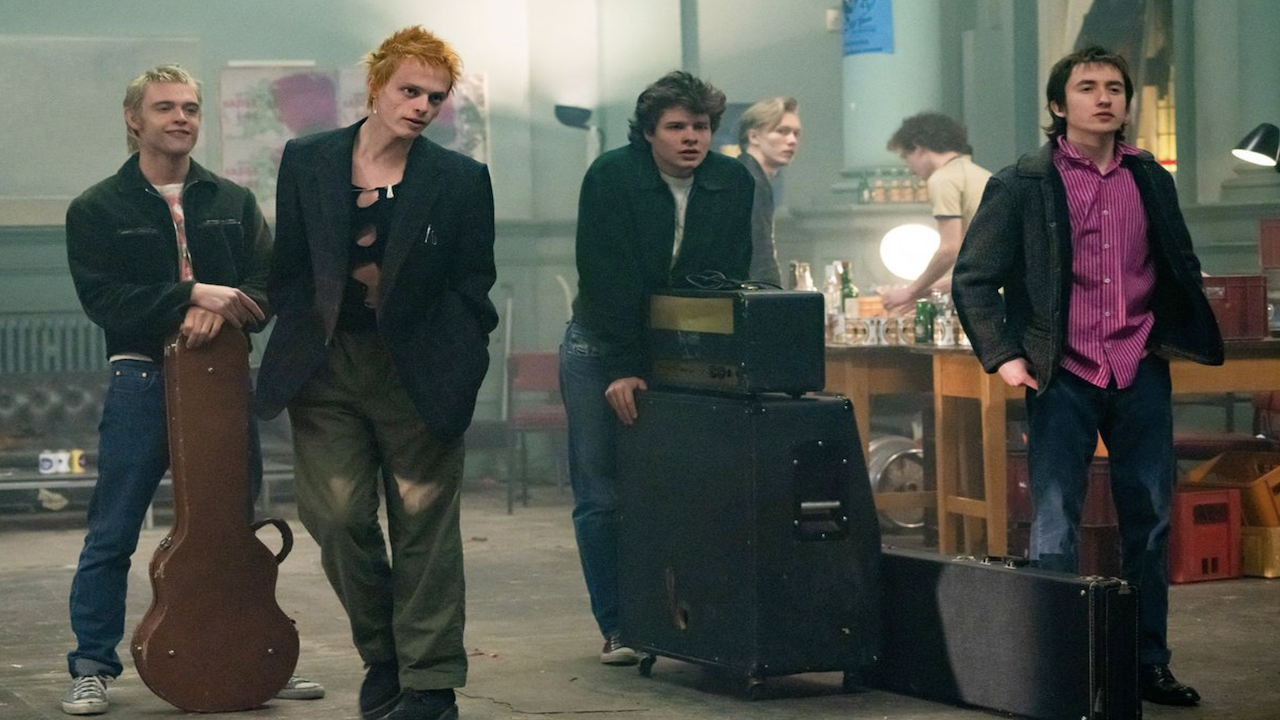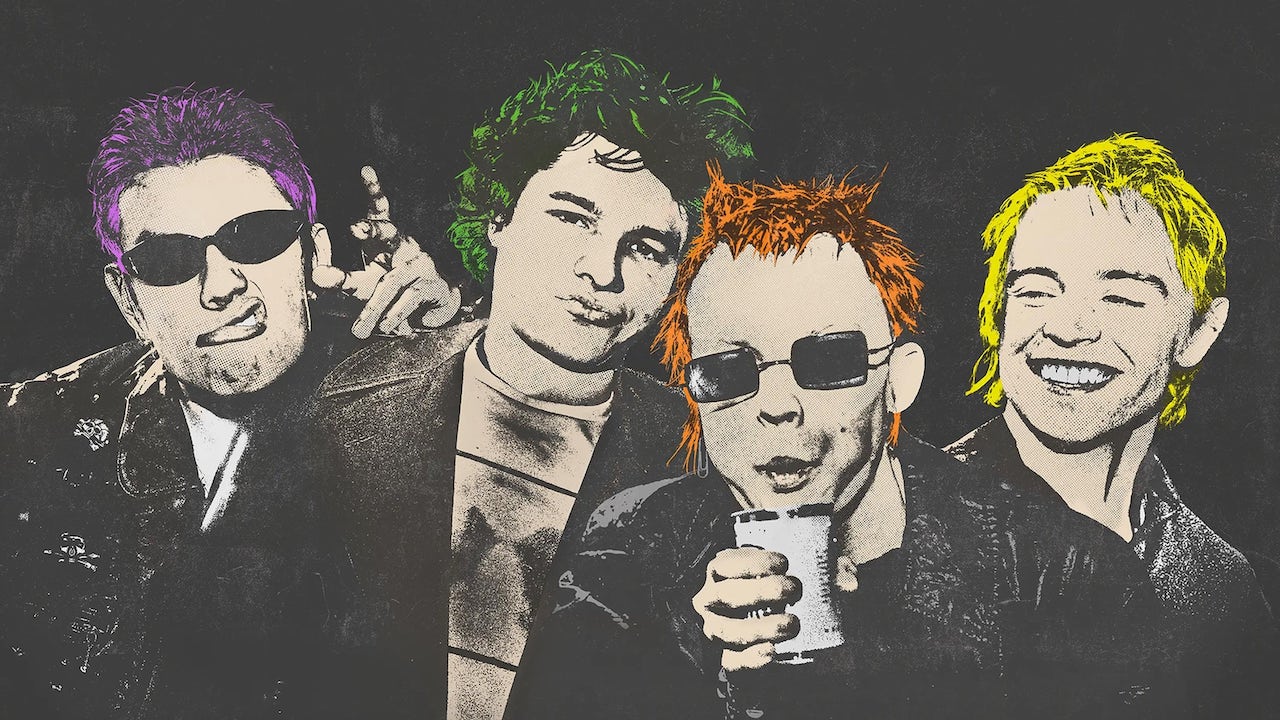Pistol is a print-the-legend punk series that has problems avoiding parody

Chronicling the birth of a genre known for short, vulgar bursts of energy, Pistol is too drawn-out and meek. Travis Johnson at least salutes Thomas Brodie-Sangster and Sydney Chandler.
Pistol: Miniseries
For the first two of its six episodes Pistol feels like pantomime. A bunch of fairly fresh-faced young actors, their hair spiked, their make-up smeared and their wardrobe carefully torn, wrap their gobs around Australian screenwriter Craig Pearce’s dialogue for the benefit of director Danny Boyle’s roaming camera.
It’s kids playing dress-up, which feels like an affront to the old school until you realise that, to some degree (exactly how much is up for violent debate) punk is predicated on kids playing dress up—mostly working class kids expressing their alienation and anger in the initial mid-70s explosion, mostly kids further up the socioeconomic ladder when the forces of commercialisation took hold, thanks in no small part to the efforts of Sex Pistols manager Malcolm McLaren (Thomas Brodie-Sangster).
It seems a bit precious to complain about the current crop of young talents embodying the elder statesmen of anarchy on screen when so many of those statesmen never got to be elder—lord knows Sid Vicious (Louis Partridge) and Nancy Spungen (Emma Appleton) didn’t.
The best way to enjoy Pistol, which is based on Sex Pistols guitarist Steve Jones’ memoir, Lonely Boy: Tales from a Sex Pistol, is with a healthy dose of ironic detachment and a touch of paternalistic indulgence—the kids are all right, by and large. Toby Wallace, excellent in the recent Babyteeth, does what he can as Jones, here more or less the straight man for the rest of the series’ menagerie, and we can assume that his character’s relative innocence derives from Jones’ image of himself.

Much more fun is the frenetic Anson Boon as Johnny Rotten, all tics and sneers and indignant rage. Tallulah Riley and an unrecognisable Maisie Williams are a fun double act as fashionista Vivienne Westwood and scenester Jordan Rooke, providing a Greek chorus at the Sex boutique that served as an axis for the London punk scene to revolve around.
In terms of plot, we get a pretty standard rise-and-fall narrative, and that’s fine—the Pistols are a notably pointed example of the archetype. Pearce’s script errs on the side of obviousness, never alluding to a theme when it can shout it, which might be punk in attitude but comes across as weirdly earnest in execution, with everyone pontificating on the cultural impact of their music and actions in a way no one ever does in the real world—except for egomaniacs like McLaren, of course.

Director Danny Boyle brings energy to the proceedings, along with as much authenticity as he can wring out of the too-new costumes and too-clean locations, but even when things get dark and Sid and Nancy turn to the needle in the back half, we’re a long way from Trainspotting.
The most interesting material deals with Jones’ relationship with emerging—and far more talented—rocker Chrissie Hynde, and newcomer Sydney Chandler is so good in the role that you don’t even mind when the script has her say that she wants to stop pretending. Efforts to move the dynamic between Jones and McLaren to the forefront fail because we don’t spend enough time with them to really care, but Brodie-Sangster walks away with every scene he’s in, so it’s not a dealbreaker (compare Matthew Goode as Robert Evans in The Offer—it’s that kind of energy).

It’s fair to say that Pistol would have worked better as a feature—when you’re dealing with a genre known for short bursts of furious energy, six hours feels like the self-indulgent double albums punk was railing against. But then that would invite more pointed comparisons with more essential works like Alex Cox’s Sid & Nancy and Julien Temple’s The Filth and the Fury—Temple actually shows up here as a supporting character.
Do make time for those two after Pistol, though—they’ll be a useful corrective to a series that’s fun enough but not tough enough to dig into its subject.




















